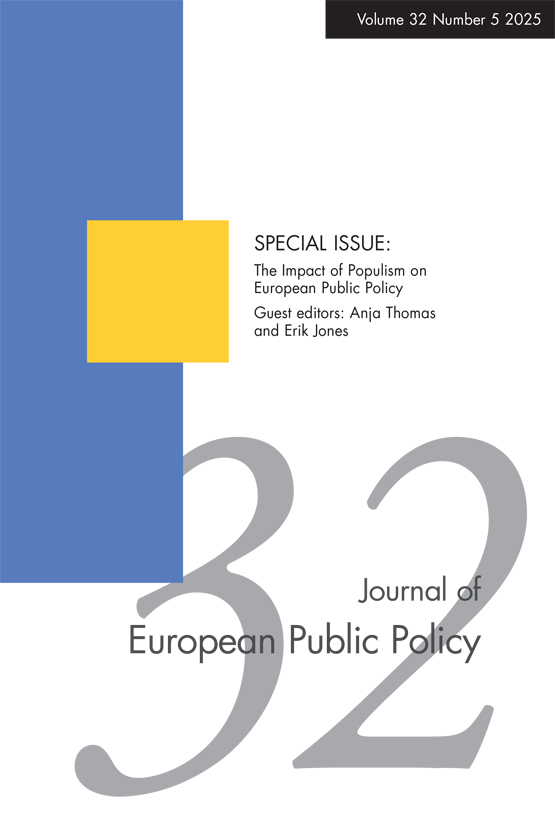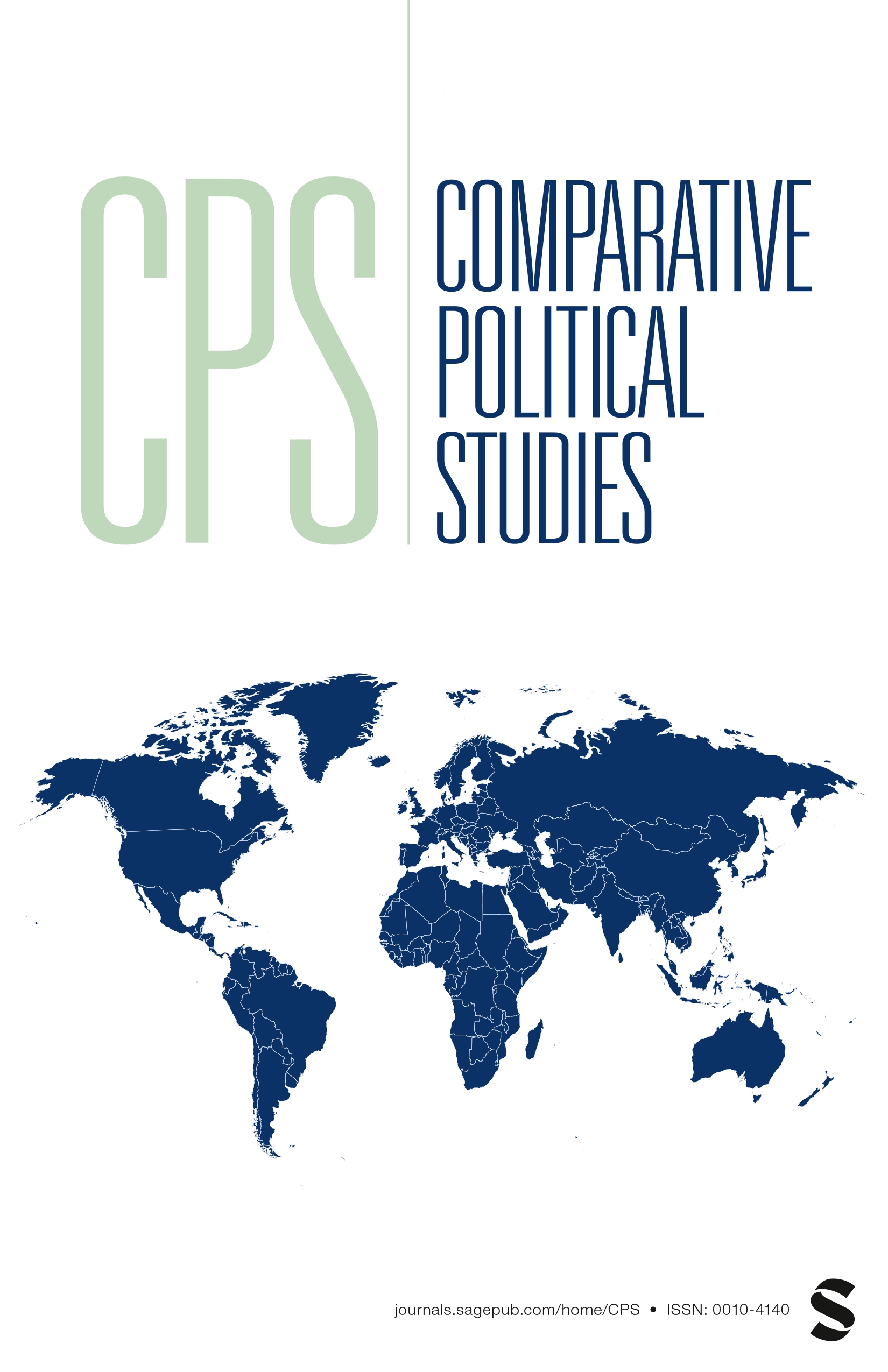SOCIAL MEDIA & YOUNG VOTERS
summary
A summary will be added in due time.
related publications
2025
-
 The Mobilization of Young Voters: Evidence from a Field ExperimentFrederik Thieme and Heike KlüverJul 2025
The Mobilization of Young Voters: Evidence from a Field ExperimentFrederik Thieme and Heike KlüverJul 2025Can traditional campaign tools still mobilize young voters in the digital age? Despite the widespread use of direct mail in election campaigns, we lack causal evidence on whether party-sent letters influence first-time voters — an electorally crucial group whose initial vote choices can shape long-term political behavior. We address this question through a large-scale field experiment conducted in collaboration with a major German parliamentary party during the 2024 European Parliament election. Randomizing the distribution of 37,000 letters across zip-code areas in Berlin, we estimate the causal effects of partisan direct mail on turnout and vote choice. We find that the campaign had no detectable effect on electoral participation or vote share for the sending party, a result confirmed by individual-level data from a post-election survey. These null findings challenge the effectiveness of conventional mobilization tactics among digitally native cohorts and underscore the need to reassess established strategies for engaging first-time voters in contemporary democracies.
@misc{thieme_mobilization_2025, title = {The {Mobilization} of {Young} {Voters}: {Evidence} from a {Field} {Experiment}}, author = {Thieme, Frederik and Klüver, Heike}, year = {2025}, month = jul, doi = {10.31219/osf.io/c3nqj_v1}, url = {https://doi.org/10.31219/osf.io/c3nqj_v1}, urldate = {2025-07-13}, language = {en}, } -
 The Youth Gender Gap in Support for the Far RightÐorđe Milosav, Zachary Dickson, Sara B. Hobolt, Heike Klüver, Theresa Kuhn, and Toni RodonJournal of European Public Policy, Mar 2025
The Youth Gender Gap in Support for the Far RightÐorđe Milosav, Zachary Dickson, Sara B. Hobolt, Heike Klüver, Theresa Kuhn, and Toni RodonJournal of European Public Policy, Mar 2025The 2024 European Parliament election showcased a surprising new trend. While progressive parties have traditionally done well among younger voters, it was far-right parties that enjoyed unprecedented electoral support among young voters in the 2024 EP elections. Analyzing data from the European Election Studies (EES) 2024, covering 27 countries and almost 25,000 voters, this paper shows that there is a sizable gender gap in voting for the far right. The electoral success of far-right parties among young voters is primarily driven by the support of young men, peaking at over 21% of all young men in 2024 compared to only about 14% among women of the same age cohort. Descriptive analyses from the EES shows that this gap can partially be explained by attitudinal differences, with young women holding more socially progressive views than young men. Age-Period-Cohort models based on EES data covering eight elections from 1989 to 2024 further reveal that this gender gap is greatest for Millennials and Generation Z. Since political attitudes and voting behaviour during the formative years may have a long-lasting effect on voting patterns and attitudes later in life, our findings have important implications for the future of European democracies.
@article{milosav_youth_2025, title = {The {Youth} {Gender} {Gap} in {Support} for the {Far} {Right}}, author = {Milosav, Ðorđe and Dickson, Zachary and Hobolt, Sara B. and Klüver, Heike and Kuhn, Theresa and Rodon, Toni}, year = {2025}, month = mar, journal = {Journal of European Public Policy}, pages = {1--25}, doi = {10.1080/13501763.2025.2481181}, issn = {1350-1763, 1466-4429}, url = {https://www.tandfonline.com/doi/full/10.1080/13501763.2025.2481181}, urldate = {2025-05-15}, language = {en}, }
2024
-
 Social Influencers and Election OutcomesHeike KlüverComparative Political Studies, Dec 2024
Social Influencers and Election OutcomesHeike KlüverComparative Political Studies, Dec 2024Do social influencers affect election outcomes? Social influencers can reach millions of people through social media platforms such as Facebook, YouTube, TikTok and Instagram. However, research on social influencers is scarce and it is unclear whether they can affect elections. I argue that social influencers can influence elections through their role as digital opinion leaders and their power to shape the public agenda. Empirically, this study leverages an event that occurred during the 2019 European election campaign. Eight days before the 2019 EP election, the social influencer Rezo published a video in which he severely attacks the christian democratic CDU/CSU which was watched by over 11.5 million users until the election. Based on a differences-in-differences design, it is shown that the video had a sizeable effect on the election resulting in considerable vote losses for the CDU/CSU. The results are important for the debate on electoral competition and social media.
@article{kluver_social_2024, title = {Social {Influencers} and {Election} {Outcomes}}, author = {Klüver, Heike}, year = {2024}, month = dec, journal = {Comparative Political Studies}, pages = {00104140241306955}, doi = {10.1177/00104140241306955}, issn = {0010-4140, 1552-3829}, url = {https://journals.sagepub.com/doi/10.1177/00104140241306955}, urldate = {2025-05-09}, language = {en}, data = {https://dataverse.harvard.edu/dataset.xhtml?persistentId=doi:10.7910/DVN/0TRHTG}, }